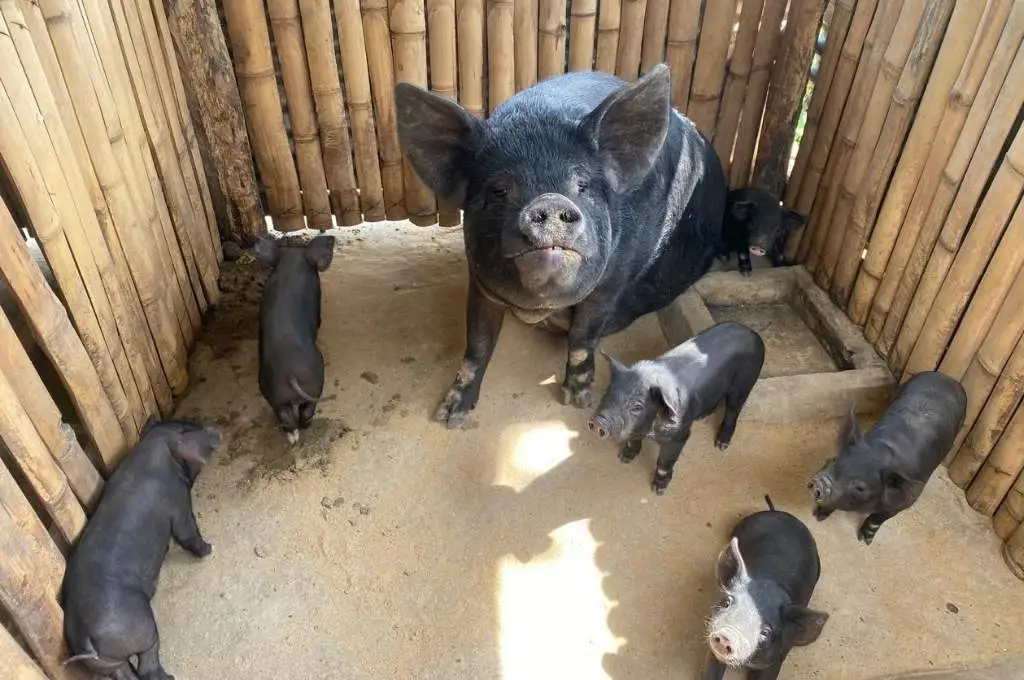
After serving for seven years as a pastor in my village, Pholami, I retired in 2004. Recognising the untapped resources and potential in Pholami, I chose to pursue small-scale farming as a sustainable way forward. Approximately 18 months ago, I decided to expand my farm.
I set up the new farm in a secluded area of the village, starting with micro-nurseries for fruit tree saplings. I also started rearing more pigs. Initially, I had six pigs that I kept outside my house. To feed them, I was using indigenous methods. I collected various non-poisonous leaves from the forests, as well as leaves of yam, pumpkin, and chayote fruit, and mixed them with wheat bran. I did this three times a week. However, leaf availability is seasonal—abundant during monsoons but scarce during dry seasons. During the dry seasons, I had to opt for banana stems.
When I decided to increase the number of pigs, relying solely on the indigenous feed was no longer feasible. So after scaling up to 46 pigs in the first batch, I switched to purchasing dry feed despite its higher cost because it was more convenient. Currently, my farm has a total of 86 pigs. I also rear goats and ducks.
Mastering farming required dedication and learning on my own. I turned to YouTube tutorials, studying the videos of experienced farmers in Nagaland and Assam to guide my livestock journey. I also learned about processes such as grafting and building soil fertility through planting pits from content creators across the globe.
Today, livestock farming is my core focus, but I also have a passion for cultivating micro-nurseries of diverse fruit saplings. Additionally, I own an orchard where I grow persimmon, wild apples, kiwi, apricots, and lemons. When the fruits ripen, I sell them in cities and towns such as Kohima and Pfutsero, where they command a favourable price.
I’ve had my share of challenges. Zoonotic diseases and flus are a constant threat because they can destroy my entire livestock population at once. In the Northeast, there’s been a surge in cases of African swine flu in recent years. However, my farm’s isolated location is a blessing because my pigs don’t come into direct contact with other animals or humans who could carry the virus.
I have also faced financial hurdles. I wanted to expand my business ever since I first started, but limited resources held me back. Securing loans from banks proved difficult since I’m not in the government service—in Nagaland, one usually needs a guarantor, typically a government employee, to be able to take a loan. But I have managed to secure loans through nonprofit organisations like The Entrepreneurs Associates.
I’m grateful that my children have now joined me on the farm after completing their education. As they return to the village, they’re rediscovering traditional ways of life. I’m optimistic that together we’ll expand our farm in the years to come. The newly constructed highway has also improved connectivity, and I envision our farm becoming a premier destination for fresh local produce.
Zacusa Medeo is a farmer in Pholami village, Phek district, Nagaland.
As told to Keletsino Mejura, IDR Northeast Media Fellow 2024–25.
—
Know more: Learn about the challenges faced by a collective of coffee farmers in Nagaland.



